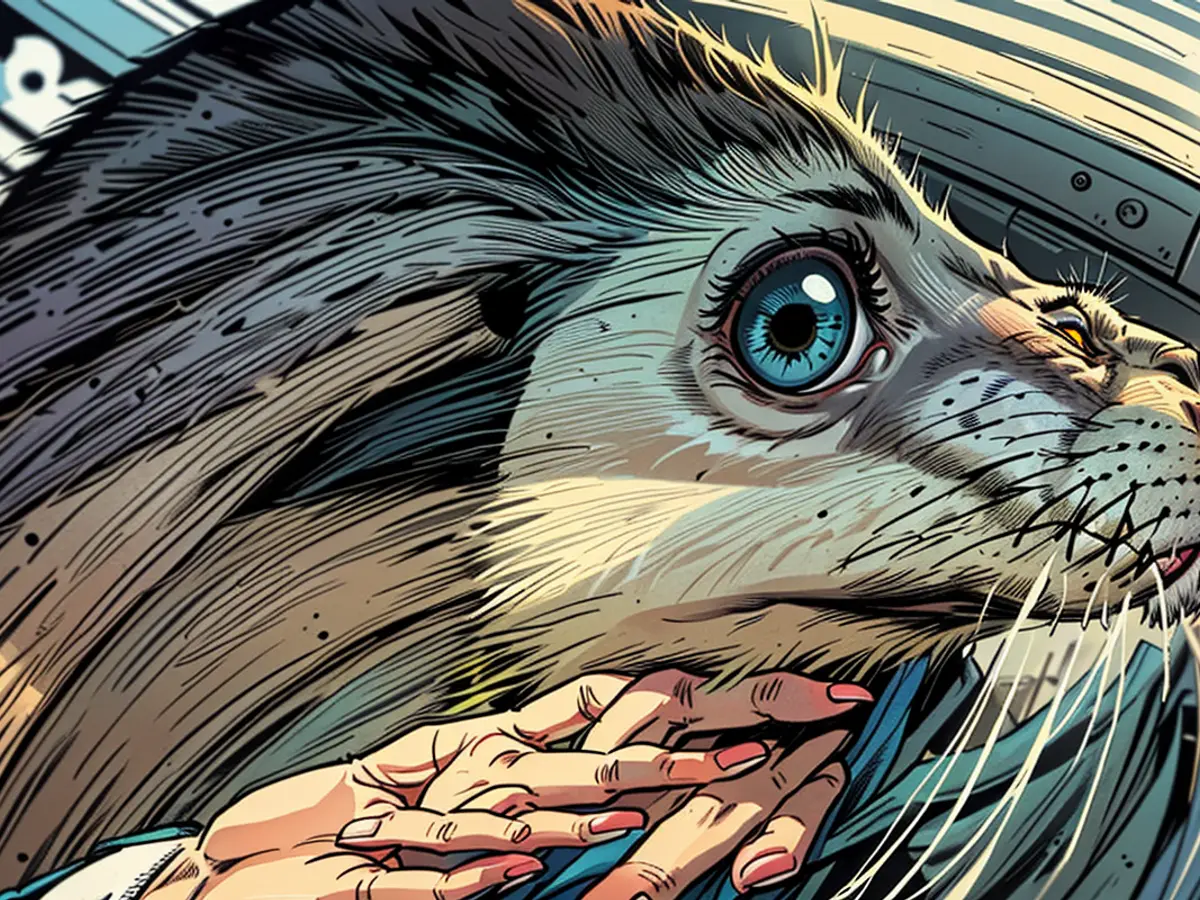- North Deich is killing off the first whiner of the season
In the German states of Lower Saxony and Schleswig-Holstein, the release of this year's seal pups into the wild has begun in recent weeks. On Juist, the young animals Reinhard, Oskar, Odin, and Fridtjof were released into the freedom of the North Sea after an average of 53 days in the Norddeich Seal Station, as the facility reported. All four had reached the release weight of at least 25 kilograms. In Schleswig-Holstein, the first animals were already returned to the North Sea at the end of July.
The first found animals of this season were discovered in both federal states in mid-May. According to the larger seal station Friedrichskoog, more than 270 young seals have been taken in for rearing since then. Currently, young animals are being released into the wild almost daily in Schleswig-Holstein. In Lower Saxony, a total of around 150 pups have been brought to the local station - 39 more than in 2023. "Human disturbance is a main factor for the separation of the pup from the mother," says Peter Lienau, director of the Norddeich Seal Station.
Disturbances weaken pups
The weather for rearing the seals in the Wadden Sea was actually optimal, according to the Norddeich Seal Station. However, early long weekends caused intense disturbances. Repeated disturbances can prevent the young animals from being sufficiently nursed and accumulating enough energy and fat reserves. Alternatively, they consume additional energy by fleeing into the water and swimming.
The birth and resting places in the national park are usually in the protection zone 1 and should not be entered. People should maintain as much distance as possible from the seals to avoid disturbing the wild animals.
The pupping season is over - young animals are now usually already independent
The Norddeich Seal Station points out that there have been no pups since early August. "All animals that are now encountered alone in the wild are already independent young animals." They usually do not need their mother or human help, "but they urgently need peace." The pupping season of seals in Schleswig-Holstein begins as early as early May, with the last births reportedly taking place in late July.
The seal stations Friedrichskoog and Norddeich are the only authorized intake facilities for pups in Germany according to an international agreement. Both facilities can be visited by visitors.
The release of wild seals continues in both Lower Saxony and Schleswig-Holstein, with the young seals Reinhard, Oskar, Odin, and Fridtjof being the latest additions from the Norddeich Seal Station. Protecting wildlife from human disturbance is crucial for their survival, as repeated disturbances can weaken pups and affect their ability to nurse and accumulate energy reserves.






